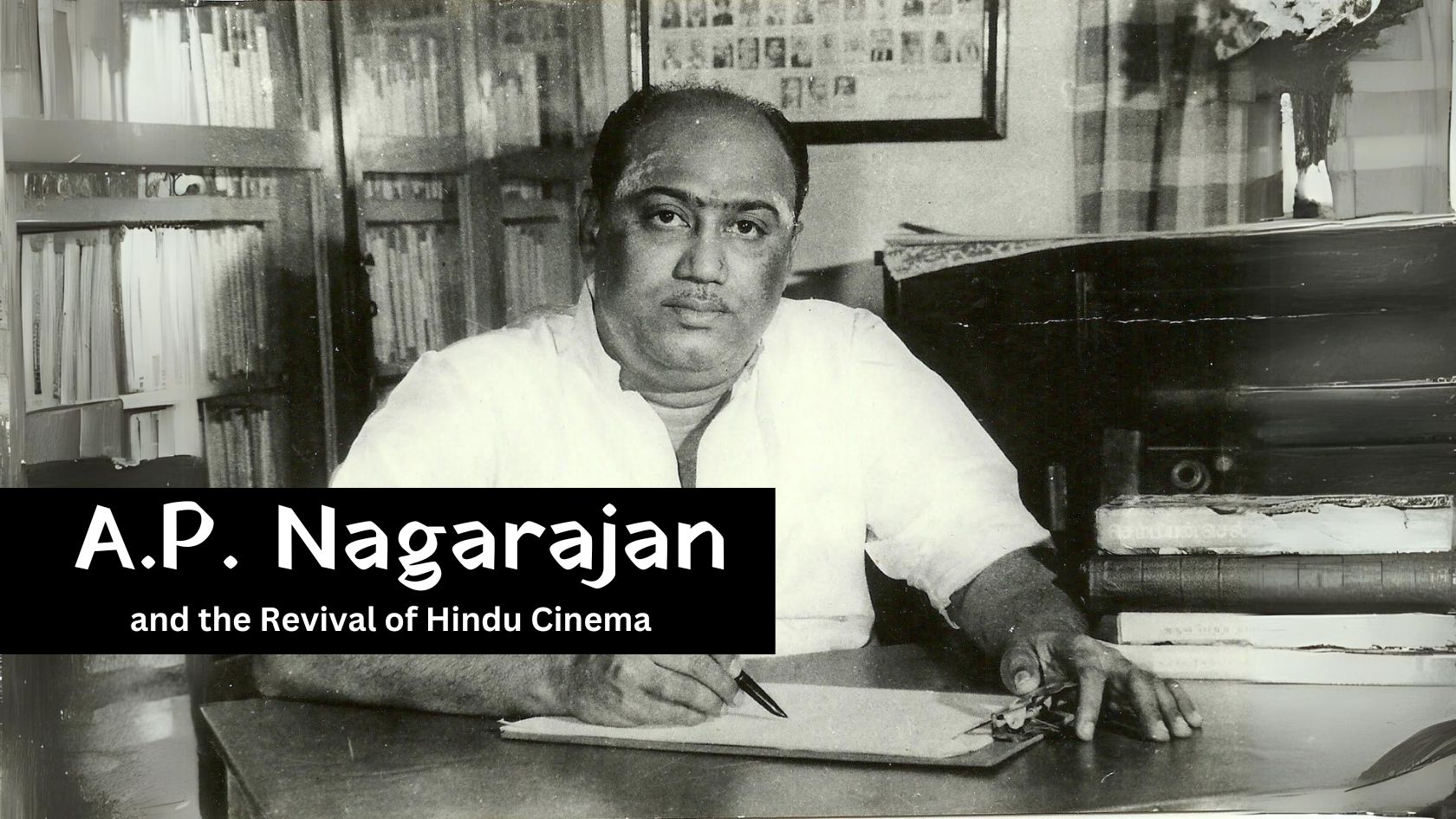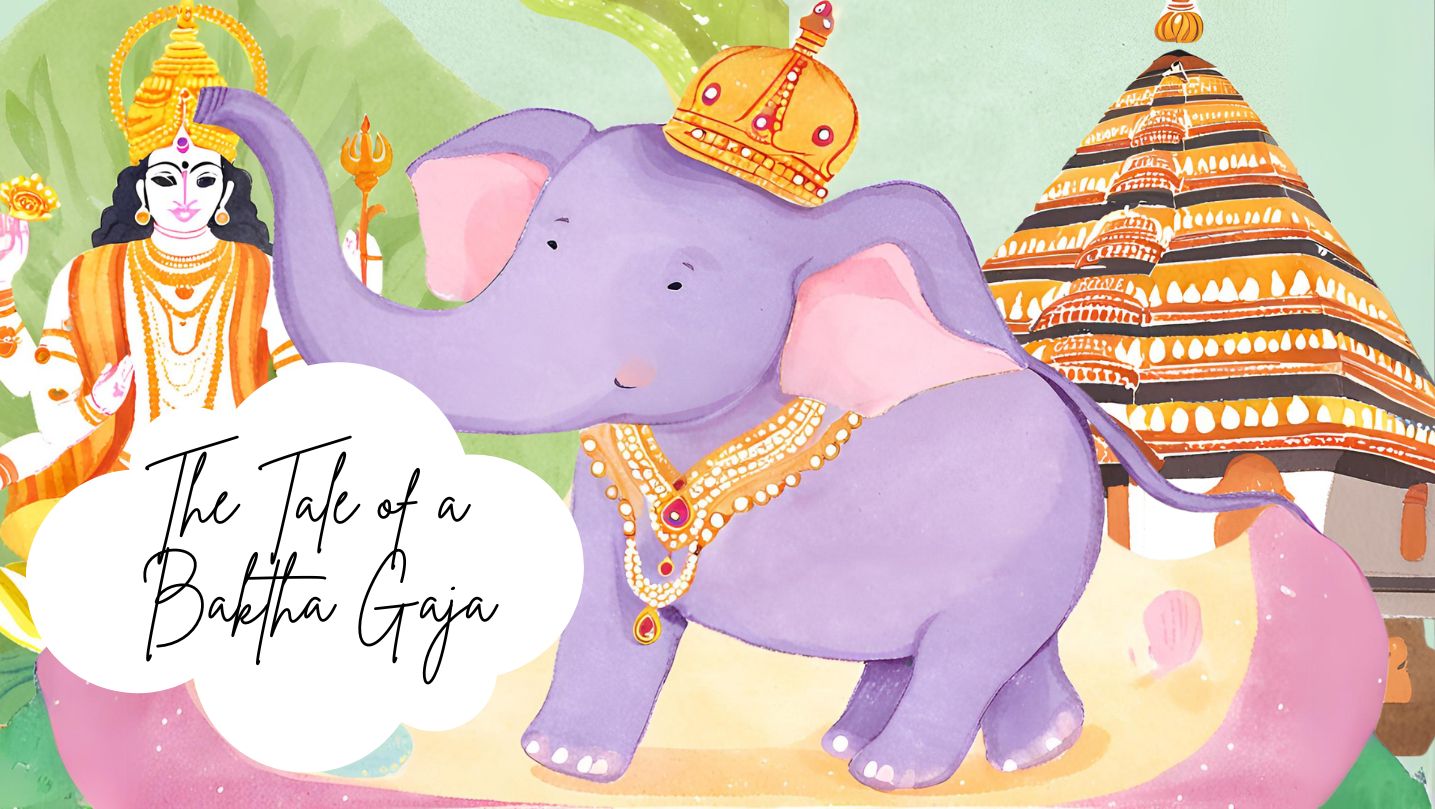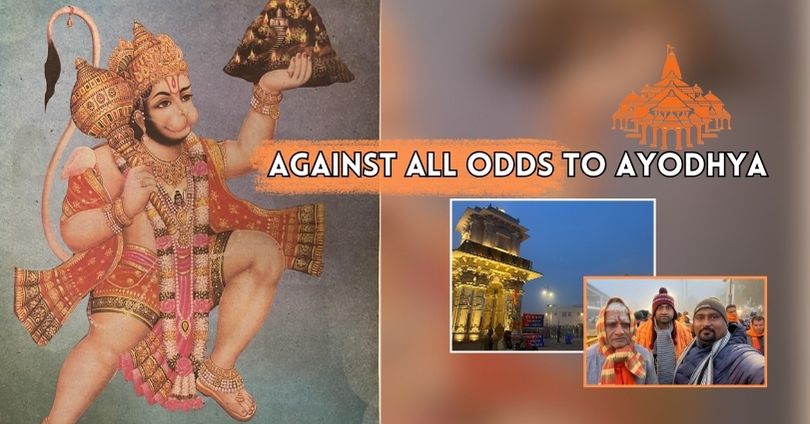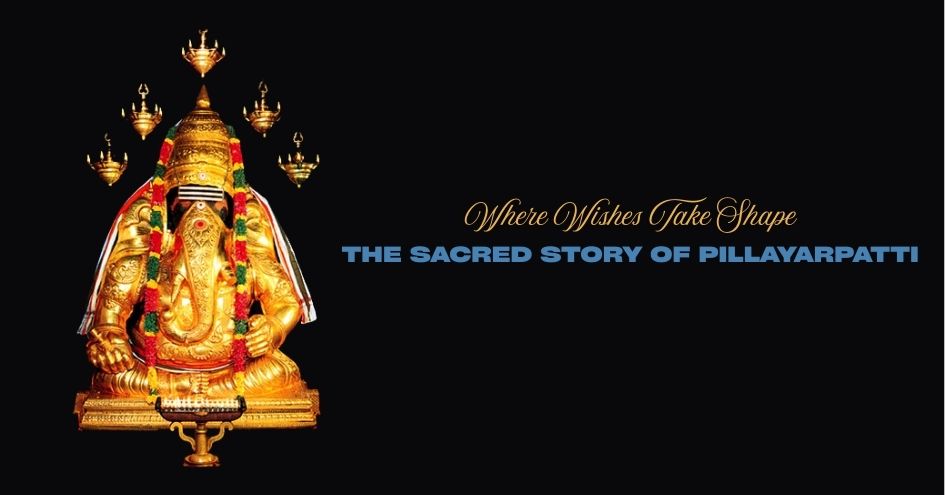
In the early days of cinema, both silent and talkie films thrived on puranas and ithihasas. However, as the years passed, especially by the late 1950s, the focus of cinema shifted toward social themes. This shift was significantly influenced by the Dravidian leaders, whose contributions cannot be overlooked. But one man dared to challenge this trend and successfully brought hindu tales back to the silver screen—A.P. Nagarajan, a visionary Tamil director and scenarist.
Nagarajan emerged as one of the pioneering new-generation scenarists during the mid-50s, a time when DMK films heavily promoted an anti-religious agenda. However, there was another reason behind his desire to revive Indic stories: the growing fascination among the youth of Madras in the 1960s for English films with questionable content. This trend deeply disturbed Nagarajan, prompting him to create Indic films as a countermeasure. His efforts paid off, as his films captivated the younger audience and reversed the trend, drawing them back to Indian cinema.
Born on February 24, 1928, in a family of affluent landowners, Akkammapettai Paramasivan Nagarajan was initially named Kuppuswamy. Tragedy struck early in his life when his father, Paramasiva Gounder, passed away, leaving young Nagarajan under the care of his mother, Lakshmi Ammal. Sadly, she too passed away shortly after. It was his maternal grandmother, Manicka Ammal, who took the responsibility of raising him. Fearing that the family might not care for the boy properly, she enrolled him in a drama company without revealing his true identity. Later, he joined Avvai T.K. Shanmugam's drama company, where his name was changed to Nagarajan, as there were too many Kuppuswamis in the troupe.
Nagarajan quickly mastered the basics of theater, rising to prominence by playing the lead in the play "Gumasthavin Penn." His acting skills were remarkable, and he had a unique ability to bring every character to life, especially in his early roles as a female, which became quite popular among audiences. He worked with notable drama companies like Madurai Jayarama Sangeetha Boys Company and Sakthi Nadaga Sabha, alongside legendary actors such as Sivaji Ganesan and Kaka Radhakrishnan.
A significant political shift occurred when the Thamizharasu Party was formed, opposing the DMK's atheistic stance. This shift allowed Nagarajan to revive the once-dismissed Hindu genre. He scripted K. Somu's hit film "Sampoorna Ramayanam" (1958), which not only revitalized the genre but also had a profound impact on Sivaji Ganesan's political career, helping him distance himself from his earlier association with the atheist DMK. Even Rajaji, who had little regard for cinema, watched the film and praised Ganesan's portrayal of Bharatha.
Nagarajan's early films as a director were melodramas, often lamenting the loss of tradition and the moral decay of modern times, similar to DMK films. For instance, in "Navarathri," a woman runs away from home and encounters nine different men on nine consecutive nights, each representing one of the nine rasas of Indian aesthetic theory. Another film, "Vaa Raja Vaa," features a young boy who earns a living as a tourist guide in Mahabalipuram. One of his major hits, "Thillana Mohanambal," set in Thanjavur, revolves around a dancer and a musician.
Nagarajan's true claim to fame came with a series of Hindu films in the 1960s, including "Thiruvillaiyadal," "Saraswathi Sabatham," "Kandan Karunai," and "Thirumal Perumai." These films reinvoked the stage-derived conventions he had previously opposed, showcasing their kitschy inventiveness. In "Saraswathi Sabatham," for example, Shiva is depicted as a Greek general, and Nagarajan even hired retired stage actors from the 1950s to add authenticity to his productions.
Nagarajan's journey in the entertainment industry began when he started his own drama company, Pazhani Kadiravan Nadaga Sabha, in 1949. That same year, he married Rani Ammal. He wrote and acted in several plays, including "Nalvar," which was later adapted into a film. Nagarajan not only wrote the screenplay but also played the hero in the film, marking the beginning of his film career in 1953. In an interview with a magazine, he mentioned his father's name and his ancestral village, Akkammapettai. This article led to a reunion with his family after almost 20 years of separation.
Nagarajan also acted in numerous films produced by M.A. Venu, formerly of Modern Theatres, such as "Mangalyam," "Nalla Thangal," and "Pennarasi." He wrote the screenplay for "Town Bus" and, by 1956, decided to focus on writing full-time. His notable screenplays include "Naan Petra Selvam" and "Makkalai Petra Maharasi," the latter of which introduced the 'Kongu Tamil' accent for the hero. He eventually ventured into production, partnering with actor V.K. Ramaswamy. Some of his works during this period include "Nalla Idaththu Sammandham" (1958), "Thayai Pol Pillai," "Noolai Pol Selai" (1959), and "Paavai Vilakku." He made his directorial debut with "Vadivukku Valaigaappu" (1962) and later launched his own production company with "Navarathri." This marked the beginning of his illustrious career in Hindu cinema.
In 1965, a year after the release of "Karnan," Nagarajan's "Thiruvilayadal" hit the screens and shattered box office records. This success was followed by a string of Hindu hits, including "Saraswathi Sabatham," "Kandhan Karunai," "Thiruvarutchelvar," "Thirumal Perumal," "Agasthiyar," "Thirumalai Deivam," "Karaikaal Ammaiyar," and "Sri Krishna Leela."
A.P. Nagarajan passed away in 1977, leaving behind a legacy that was as grand and epic as the films he created. A self-taught man, his life story is nothing short of a cinematic epic itself, full of drama, triumph, and an unwavering commitment to preserving and celebrating India's rich hindu heritage.
 Dakshinamurthy is a scholar and researcher of Indic themes and a contributing writer of The Verandah Club
Dakshinamurthy is a scholar and researcher of Indic themes and a contributing writer of The Verandah Club
PREVIOUS ARTICLE
NEXT ARTICLE

In the lush, green heart of Kerala lived an elephant who became a living legend - a tale of an elephant turned into a bakth. His name was Keshavan, bu...

Life often presents us with choices that test our resolve, faith, and priorities. Attending the Prana Pratishtha of the Ram Lalla in Ayodhya had alway...

Tucked away in the Sivaganga district of Tamil Nadu lies Pillayarpatti, a small town whose name itself is a tribute to the beloved deity, Pillayar - a...